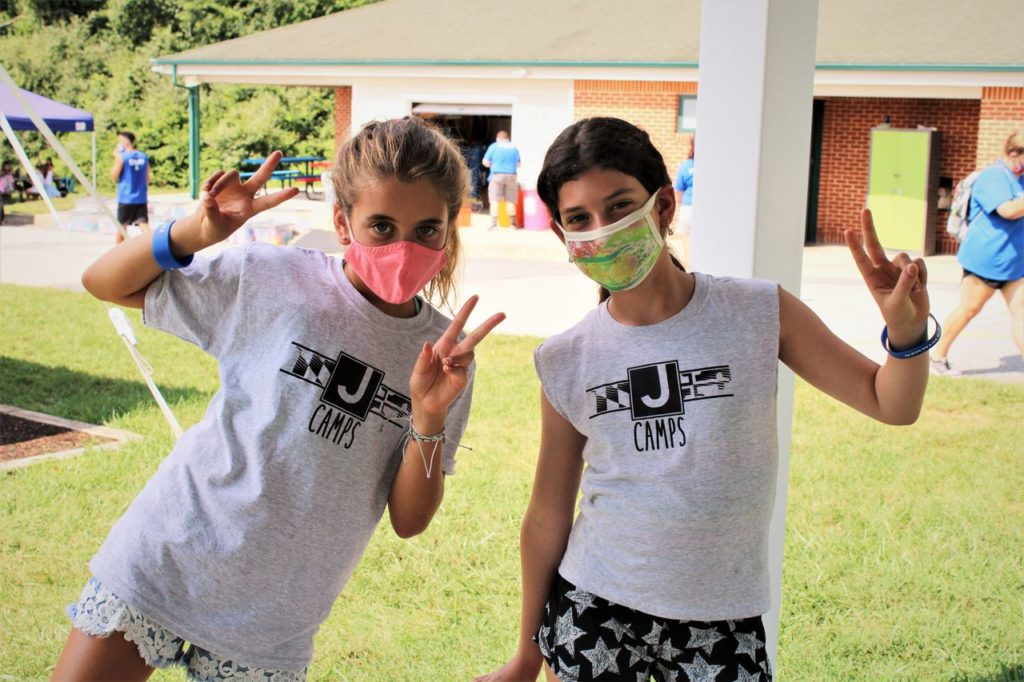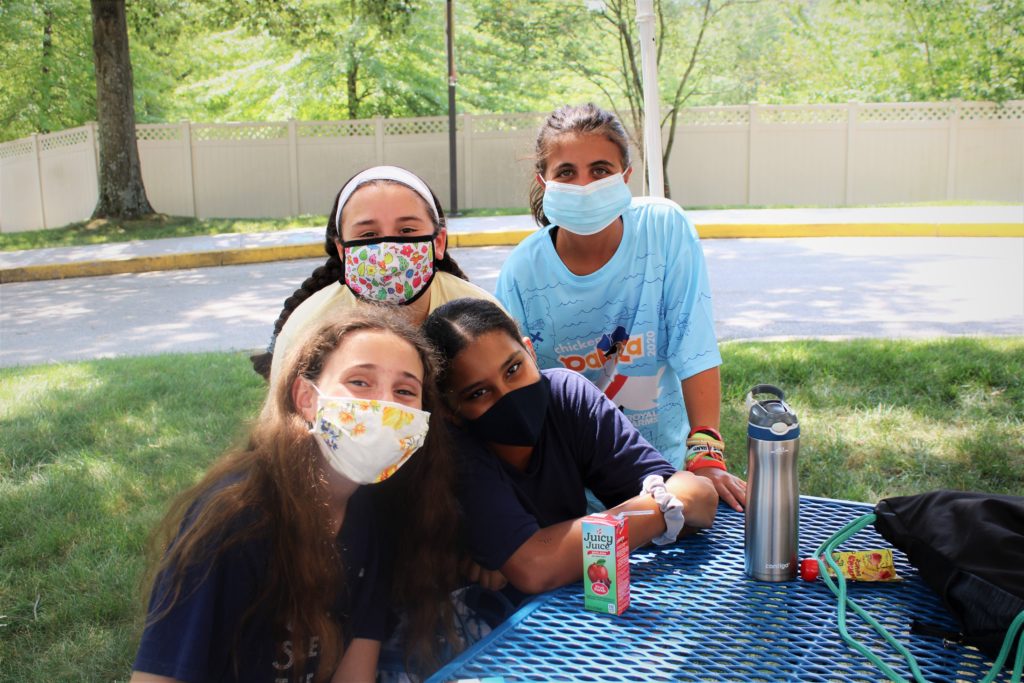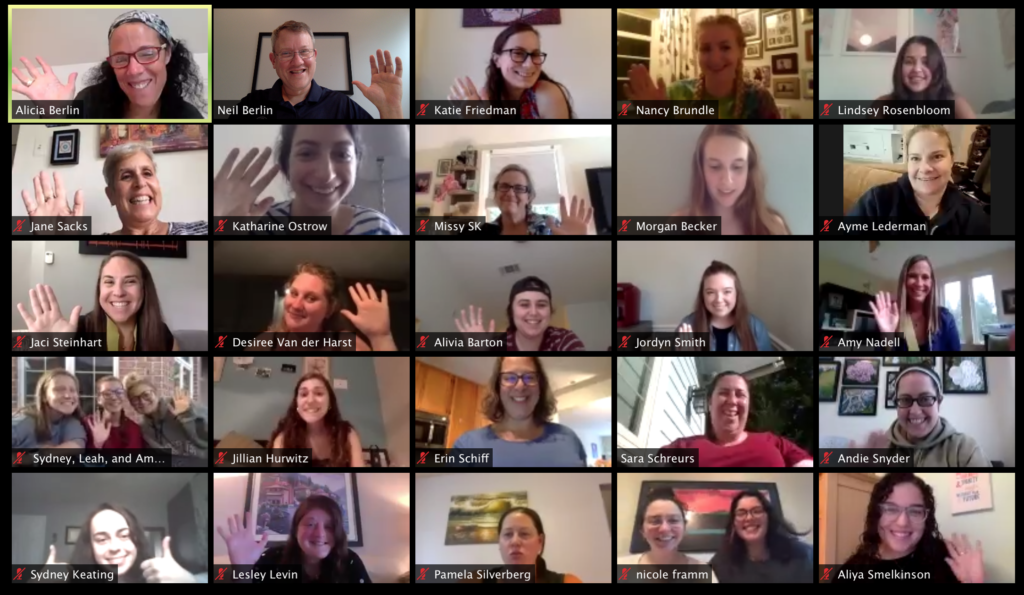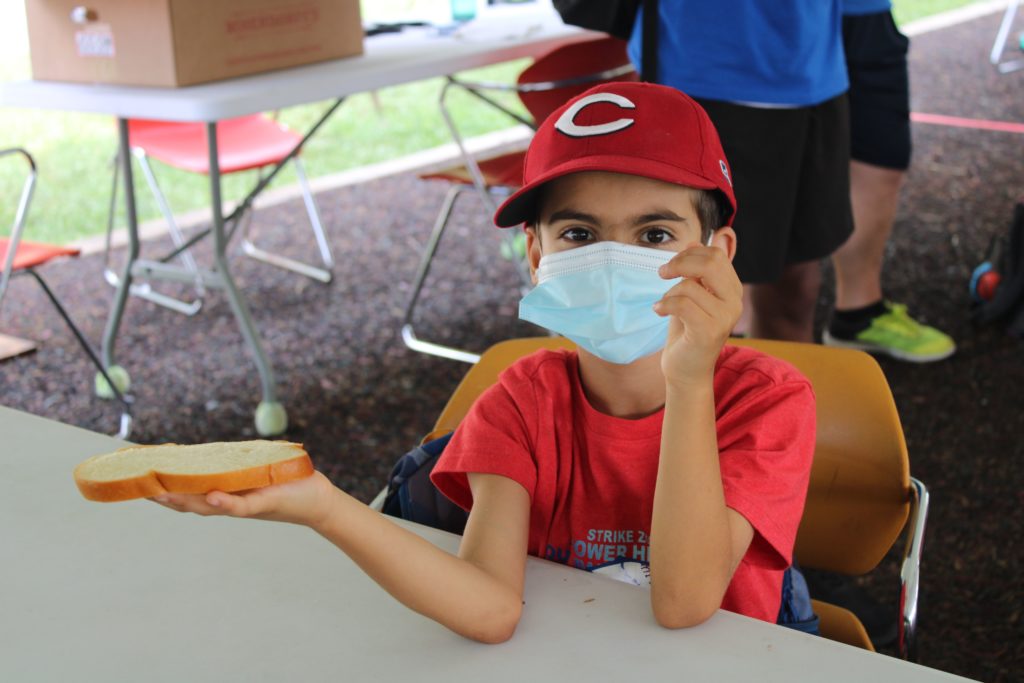
We may still be in the middle of winter, but it’s not too early for parents to start planning for their children’s’ summer break, and where or even if to send them for a camp program. And while few would call 2020’s summer camp experience ideal, the potential of a coronavirus vaccine begs the question of whether 2021 could hearken back to a return to normality.
JCC of Greater Baltimore

“We are planning for Summer 2021 to look like Summer 2019 (pre-pandemic) and still following the guidelines around COVID,” said Stacy Deems, assistant director of the JCC of Greater Baltimore’s J Camps program. If so, it will likely come as a relief to many children and parents who still remember the challenges of 2020’s camping season.
Unlike some other camp programs, which chose to either cancel their summer offerings or make do with an online experience, for its 2020 season, the JCC chose to launch its Summer at the J program, Deems said. An entirely outdoor program, Summer at the J featured several different, two-week long tracks for families to choose from. This included a track for sports, one for arts and a general track, along with a track for rising 7th and 8th graders. Campers had swimming every day, while taking part in nature, science, arts, athletics and service projects, capping off the week with a Shabbat celebration on Fridays. Campers also had the choice to take part in the half-day J Tennis Academy or the CSA Karate Summer Experience, Deems said.
The “uncertainty of COVID and not having clear protocols early enough from the Maryland Department of Health was a large hurdle,” Deems said, resulting in the JCC’s camp programming being delayed for two weeks.

When camp did begin at the JCC, temperature checks and health screenings were performed each morning, Deems said, while campers and staff members were grouped together into specific bunks or “pods” that stayed together for the duration of the two-week session. Activities were held outdoors, group sizes were kept small and staff took into consideration a child’s age when it was necessary to explain social distancing procedures to them. Extra hand-washing stations were added, lunch periods were staggered and all staff wore masks while campers followed the state’s guidelines on mask-wearing.
Deems gave the Summer at the J a grade of A on their response to the pandemic, noting how their camp had no COVID-19 cases or shutdowns. She gave the program staff, campers and families an “A+ for their resiliency, enthusiasm and trust they have shown to J Camps this past summer.”
Camps Airy and Louise
Other groups took a different route. Because of Gov. Larry Hogan’s mandate on residential camping, Camps Airy and Louise offered the community an online community engagement experience, said Jonathan Gerstl, executive director of Camps Airy and Louise.

Airy and Louise’s programming, which ran from the end of June to the beginning of August, included activities such as music, bingo, trivia games, challah making, yoga and hangouts with counselors.
“I think it was just figuring out with a lot of trial and throwing some darts to see what stuck with our community in terms of participation,” Gerstl said.
“For not being in the online business, we did a really good job of engaging our community.”
Habonim Dror Camp Moshava
Over in the village of Street, Habonim Dror Camp Moshava adopted a strategy similar to Camps Airy and Louise, implementing a virtual camp experience for 2020, said Talia Rodwin, the camp’s assistant director
Their program lasted five to six weeks, with campers joining in camp activities three or four times a week depending on their age group. Activities included role playing, discussions on topics such as Israel, gender, identity and Jewish community, and a talent show.
Some of the challenges that accompanied the switch to online camp, Rodwin said, included having to keep track of communication, with many different emails flying back and forth throughout the session.
Additionally, there were the difficulties that online programming poses to effective community building.
“We had new campers come to our summer program who had never been to camp in person,” Rodwin said, “and I think it was an awesome experience for them. But I know it’s not as impactful as that new summer when you’re actually in person at camp. It’s harder to get to know someone online.”
Camp Havaya
Located in South Sterling, Pa., Camp Havaya also made the shift into the virtual space during 2020, according to the camp’s director, Sheira Director-Nowack. Havaya targeted the end of July and beginning of August to give campers two weeks of free, hop on/hop off online camp from 9 a.m. to, on some nights, 8 p.m. Available activities included Zentangling, ultimate Frisbee, dancing and a “choose your own adventure summer camp activity.” The ultimate Frisbee programming, Director-Nowack explained, primarily entailed tutorials on properly throwing Frisbees.
Director-Nowack rated Camp Havaya’s 2020 programming very highly, saying that participating families were very happy with the programs they offered, and that “over 85% of our families donated.”
Looking forward

For 2021, Deems said that organizers are preparing for their usual J Camps programs, expecting to reinstate their Late Stay and Early Drop Off programs while also adding “dynamic outside programming to our campus.” At the same time, Deems said it was important to stay flexible and make changes as necessary.
“We learned a lot from opening last summer,” Deems said, “and we are confident that we will be successful in 2021 as well.”
While Camps Airy and Louise are “projecting we’ll be open for the summer of 2021,” Gerstl said, many of the details have yet to be finalized. He expects there will be some mask wearing in certain places, some social distancing in the dining hall, and that there may be an emphasis on outdoor activities where air circulates more freely. The plans will become more detailed and specific with the approach of spring, and with more knowledge of how the COVID-19 vaccine, faster testing and new guidelines from the state will alter the facts on the ground.
Also stressing the importance of flexibility, Camp Havaya’s Director-Nowack said she is about 99% sure that it will open to campers during the 2021 season. What exactly that would look like, she said, will depend on the events in the coming months, but they are currently planning under the presumption of “no one having a vaccine,” and are planning to use pods, sanitized cleanings and face masks.
Rodwin is “hopeful” about Habonim Dror Camp Moshava’s summer 2021 programming looking more similar to what it normally has available. COVID-19 protocols, including mask wearing and dividing campers into separate cohorts of 10 to 12 children for at least some of the summer, would be put in place to keep people safe, she said.
“People need to know that it will still feel like camp,” Rodwin said. “There can be this sense of sadness, of ‘Oh, we can’t do all of our traditions in the exact same way that we can do them.’ But camp is a very creative space. Camp is generative of new ideas, and we can take things that were traditions and shift them on their head, and that becomes a new tradition.”

